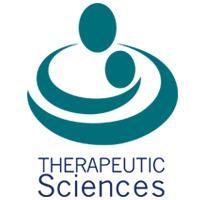Undergraduate Course
Undergraduate CourseOutline The BSc. OT (Witwatersrand) is a four-year professional degree which has the two professional major subjects of Science of Occupation and Occupational Therapy.
Science of Occupation:
"The science of occupation is defined as a basic science devoted to the study of the human as an occupational being. As a basic science, it is free to pursue the widest and deepest questions concerning human beings as actors who adapt to the challenges of their environments via the use of skills and capacities organised or categorized as occupation".
Yerxa (1993)
The science of occupation (also known as occupational science) is a basic science which analyzes the occupations of human beings and the various factors that influence those occupations. It explores:
- the human need to be occupied
- the purpose of occupation in survival and health
- the effects of occupation or occupational deprivation
- the reason that humans strive for occupational competence and mastery
- the factors that prevent or enhance occupational performance
- the social, cultural, economic, demographic and political factors which affect
occupation - the ways in which occupation satisfies biological, physical, emotional and socio-
cultural needs - the role of and necessity for occupation in the development of human capacities
- the point at which occupation becomes dysfunctional, the causes of this and the
implications for health and wellness of individuals
Occupational Therapy:
The subject of Occupational Therapy is the study of how to assess and remediate occupational performance that is disturbed or disrupted in some way. It is thus intrinsically linked to the science of occupation.
First Year
- Fundamentals of Occupational Science and Occupational Therapy I (full course)
- Psychology I (full course divided into two half year modules: Introduction to Psychology I and Basic principles of group and individual psychology I)
- Introduction to Medical Science (Half course)
- Physics (half-course)
- Chemistry (half-course)
- Human Behavioural Science (half-course)
Second Year
- Fundamentals of Occupational Science and Occupational Therapy II (full course)
- Anatomy for Physiotherapy and Occupational Therapy 足球竞彩app排名s (full course)
- Physiology and Medical Biochemistry I (full course)
Third Year
- Science of Occupation II (full course)
- Occupational Therapy II applied to Physical Conditions (full course)
- Occupational Therapy Applied to Psychiatric Conditions (full course)
- Medicine and Surgery for Therapists (full course)
- Psychiatry (full course)
- Psychology II [has two compulsory modules: Health Psychology and Research Design and analysis ]
Fourth Year
- Science of Occupation III (full course)
- Occupational Therapy III Applied to Physical Conditions [includes adults and children](full course)
- Occupational Therapy III Applied to Psychiatric Conditions[includes adults and children] (full course)
The educational methodology to be used in the undergraduate course is a hybrid version of the problem-based learning strategy which is outcomes driven, combined with a Blended Learning approach. This strategy is limited to the occupational therapy components of the course until such time as the university resources are available to have a fully integrated problem-based curriculum. The Occupational therapy curriculum is supported by an e-Learning platform which is dynamic and is integrating a blended teaching and learning approach to the educational programme. The department is well resourced with the latest technologies and IT staff to support this.
The department aims through its educational strategy to train generalist occupational therapists who are:
Lifelong learners,
Critical and creative thinkers,
Team players who are culturally sensitive and are able to work competently in groups in collaboration with others,
Client centred,
Able to communicate effectively considering the background of those with whom they work,
Able to solve complex problems by using critical reasoning, evidence and engaging stakeholders in the process,
Able to collect, analyse and critically evaluate information in their search for the evidence to defend and support their practice.
In developing and critically reviewing the curriculum the academic staff engage regularly with our stakeholders to ensure that the curriculum content is appropriate, manageable, current and will enable competence at the work entry level.
To enable teaching and learning the department strives to develop a learning environment that is student friendly with appropriate teaching and learning resources and which is encouraging, supportive and sensitive to learners' individual needs. The development of professional knowledge and skill is enhanced by the employing skilled occupational therapy educators and support staff, provision of appropriate teaching space and resources and educational technology. Affective learning, including the development of professional and ethical behaviour, is developed by making these issues overt in the curriculum, providing effective role models and an effective framework with the School to provide guidance and principles for acceptable professional behaviour and the procedures to address behaviour considered to be unprofessional.
Appropriate programmes of support and remediation have been developed for at-risk students within the department and together with the Assistant dean of 足球竞彩app排名 Affairs and Faculty Office of 足球竞彩app排名 Success. Appropriate strategies and support will be provided to compensate for compassion fatigue and the stress of dealing with illness and disability.


